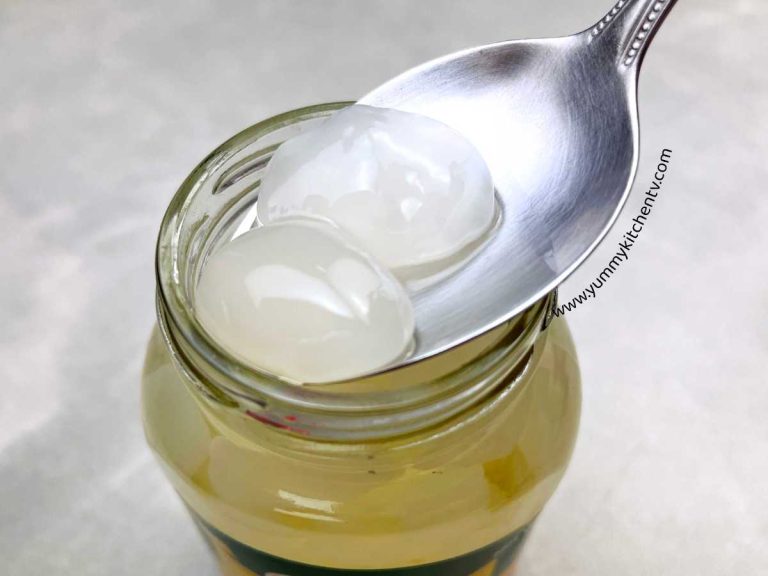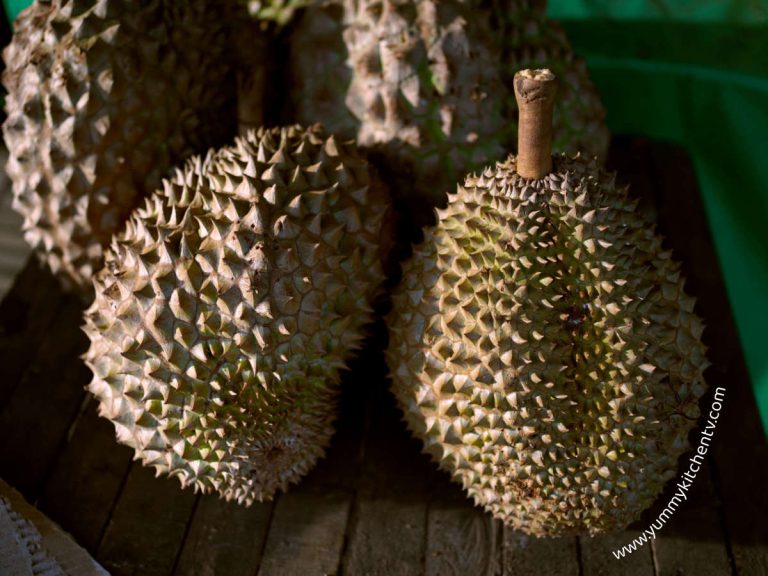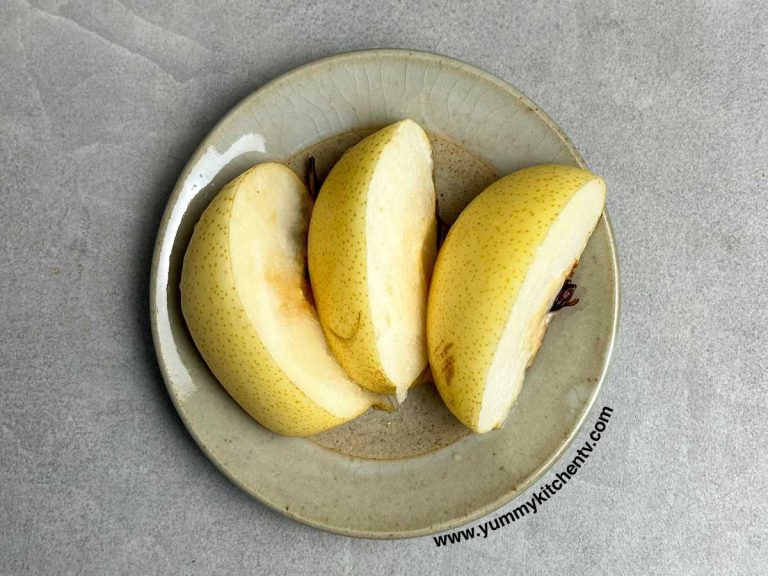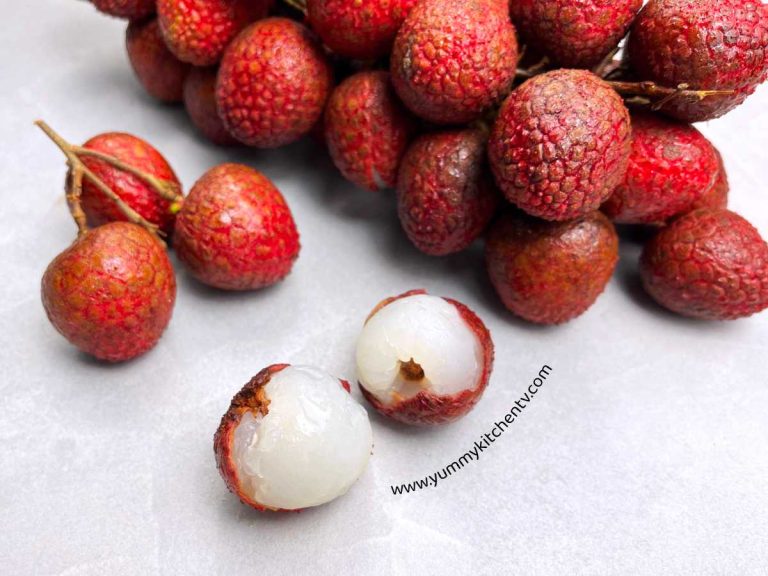Basil – A Versatile Aromatic Leafy Green Herb
Basil is a must-have in the kitchen. A versatile aromatic leafy green herb not only used in the culinary world but also in traditional medicine, cosmetics, fragrances, and aromatherapy. An herb with a lot of varieties from the slight spiciness of Thai basil to the sweetness of Sweet basil and the unique flavor profile of Greek basil, each variety lends its distinct flavors to Mediterranean and Southeast Asian dishes. Beyond its diverse uses in food like salads, pastas, to garnishes. This peppery subtly sweet herb is also known for its many health benefits, being rich in Vitamin K and antioxidants, and combating inflammation and oxidative stress. Scroll down to find out more about this sweet and peppery herb.
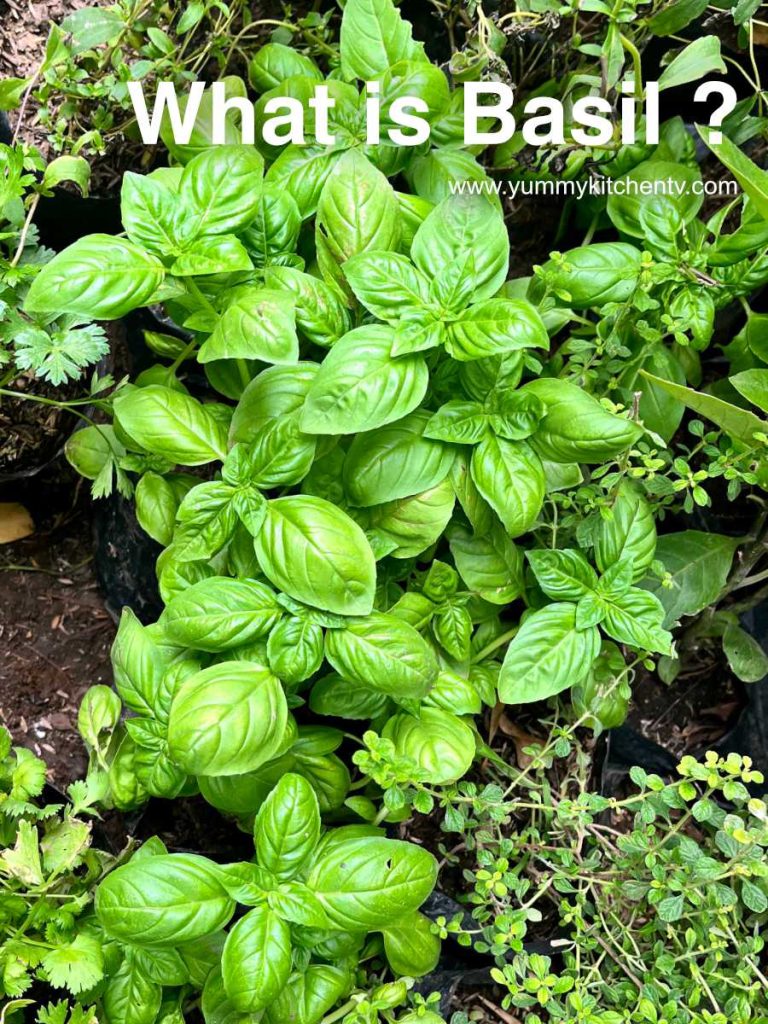
A short introduction
This aromatic and deliciously popular herb is celebrated for its fragrant leaves and distinctive taste, belongs under the mint family. The word “Basil” came from the Greek word “basileus” which signifies “nobility” or “regal standing”. This herb boasts an array of unique varieties with diverse uses in medicine, cuisine, and aromatherapy. A plant that contains a significant amount of nutritional benefits such as vitamins K and antioxidants which underscores why this fragrant leaf has been used in traditional herbal medicine across different regions of the world.
The herb’s fresh, peppery, and slightly sweet flavor has made it a staple in kitchens across the globe. Whether it’s Italian, Thai, or Mediterranean cuisine, this ingredient plays a crucial role in enhancing the taste of countless dishes. With its distinct aroma and flavor, Basil provides a unique flavor to salads, pastas, marinades, seasonings, sauces, to create infused olive oils, or even infused butter, herbal teas, or mixed in beverages, and even used as a garland. Its versatility in the culinary landscape, from enhancing the flavors of Italian classics to infusing Thai cuisine with its signature spice, has made it a culinary gem cherished by chefs and food enthusiasts alike.
Basil in the Culinary World
This small, sweet, peppery, green leafy herb has found widespread use in both Mediterranean and Southeast Asian cuisines, particularly making its mark in Italian cuisine where it’s popularly used for classics like the ever popular pesto, Caprese salad, and Margherita pizza. It is also notably used in Thai dishes, such as Thai Basil Chicken, Thai Green Curry, 3 cup Chicken, and Tom Yum Soup. Meanwhile, in Vietnamese cuisine, creations like the Pho, spring rolls, and Thai Basil Fried Rice. These dishes mentioned above prove that this small but impactful herb creates a deliciously aromatic and flavorful iconic dish that many around the world are familiar with.
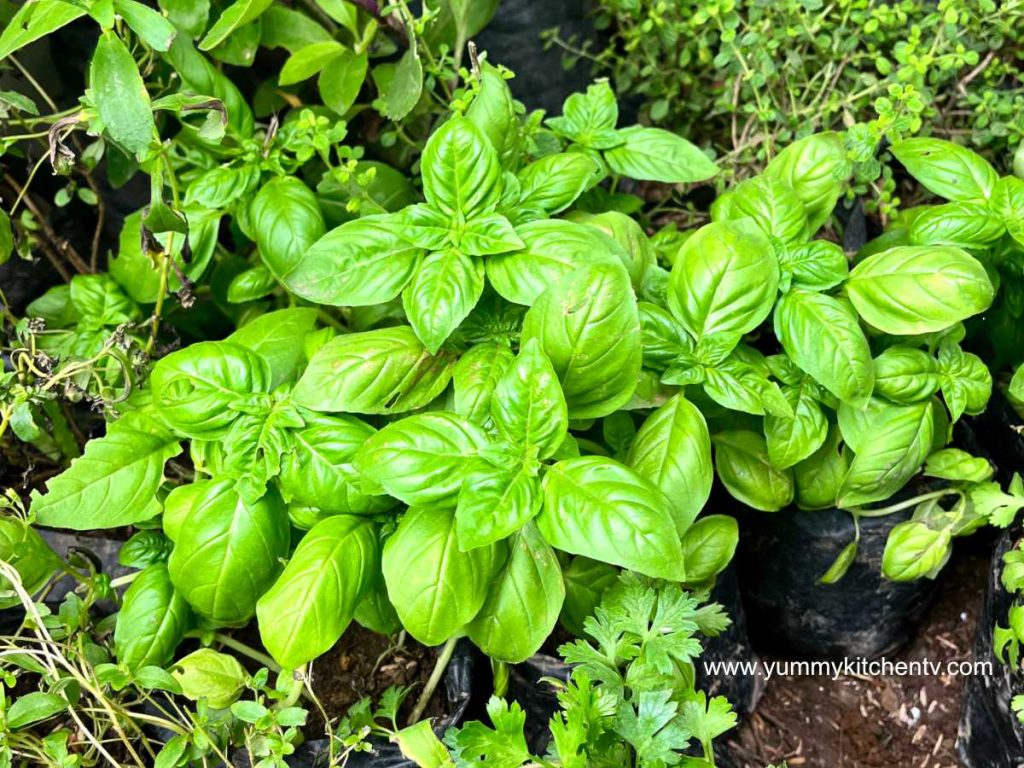
Types of Basil
Basil comes in varieties, each with its unique flavors. Here are five of the most common types:
- Sweet Basil: The most common type used in Italian cooking, it has large, shiny leaves with a sweet, slightly peppery flavor. This variety is commonly used for Pesto sauce and Caprese salad.
- Thai Basil: Also known as Thai Holy Basil, it adds a spicy, anise-like kick to Thai dishes, such as Pad Thai and Tom Yum soup.
- Greek Basil: This variety boasts smaller, more delicate leaves and a milder flavor, often found in Greek salads, moussaka, and other Mediterranean dishes.
- Lemon Basil: offers a pleasant addition to salads, seafood, and desserts with its refreshing lemony aroma and flavor.
- Holy Basil (Tulsi): A strong and spicy variety used in traditional medicine and teas.
- Purple Basil: This version is an aromatic type of purple leafy herb with a sweet and spicy taste. It specifically has a hint of clove-like flavor which when added to salads and pesto makes it more interesting.
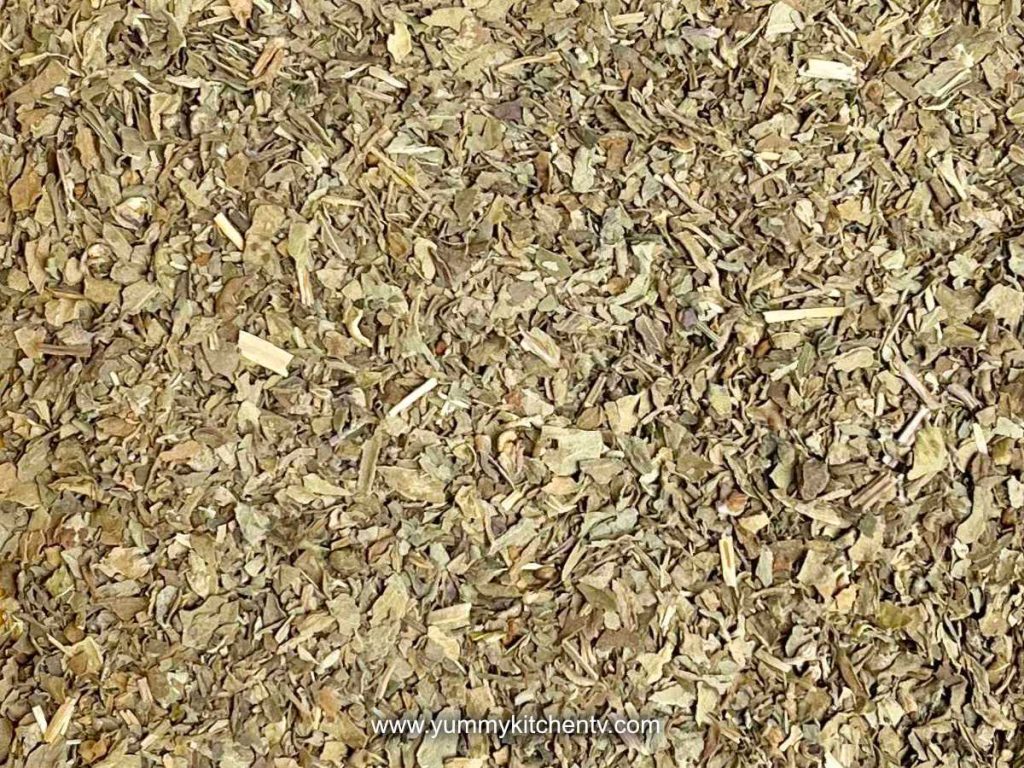
Nutritional benefits
Beyond its delightful flavor, this herb packs a nutritional punch that adds to its appeal. Basil is a great source of vitamins and minerals, including vitamin K, vitamin A, and manganese. Additionally, it contains abundant antioxidants, particularly flavonoids, that aid in addressing oxidative stress and inflammation within the body.
- Serves as a significant source of vitamin K which provides support in bone and cardiovascular health.
- Improve blood sugar levels due to its anti-diabetic properties
- Contains antibacterial properties that fight respiratory and urinary infections
- Anti-microbial and anti-inflammatory properties help treat acne when applied topically.
- Elevate mental alertness and combat fatigue when used in aromatherapy.
Recipes with basil
- Spanish Sardines Pasta
- Creamy Lemon Chicken
- Creamy Cheese Pasta
- Shrimp Alfredo recipe
- Sweet and Sour Meatballs
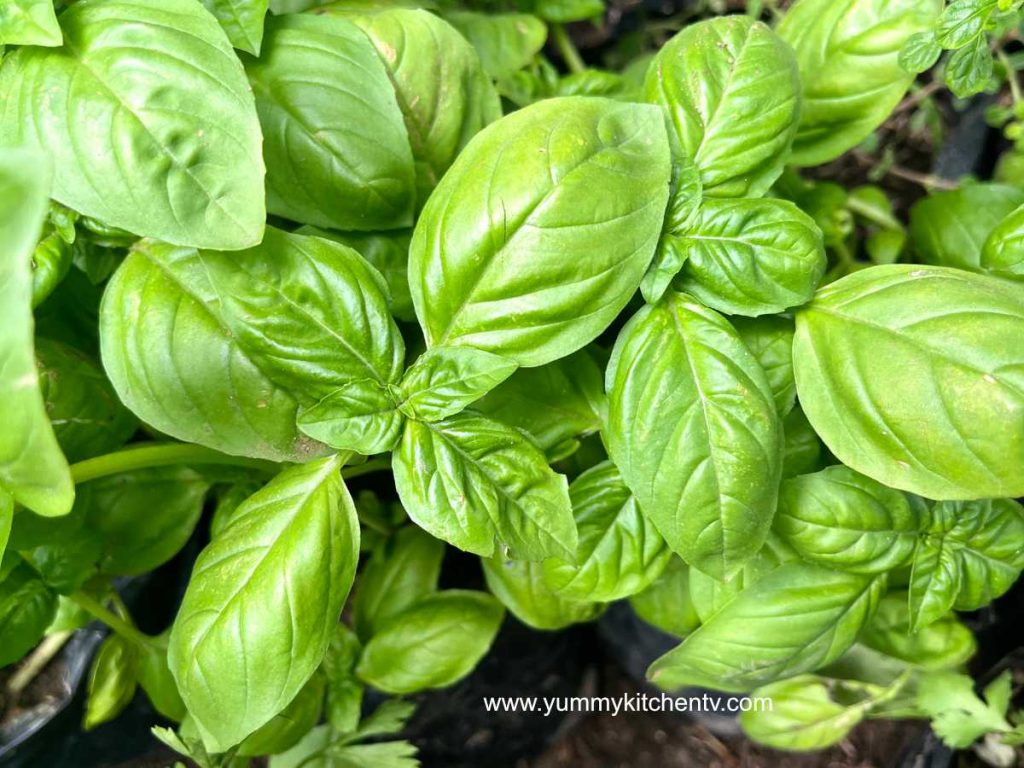
#Basil #FreshHerbs #CookingWithBasil #HerbGarden #FlavorfulCooking #HealthyEating #BasilLovers #HerbMagic #GreenGoodness #KitchenEssentials #NaturalFlavors #FlavorBoost
